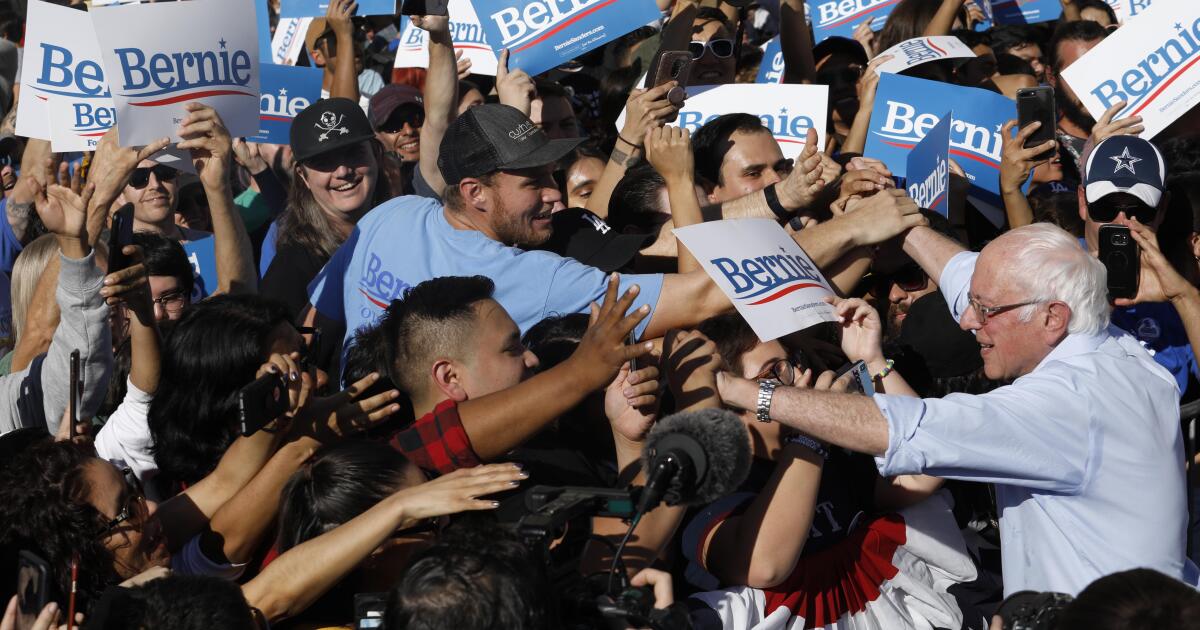Sen. Bernie Sanders to kick off California billionaires tax campaign
Sen. Bernie Sanders, a political hero among liberals and populists, next week will formally kick off the campaign to place a new tax on billionaires on California’s November ballot.
The controversial proposal, which would impose a one-time 5% tax on the assets of the state’s wealthiest residents, is critical to backfilling federal funding cuts to healthcare enacted by the Trump administration, Sanders said in a statement.
“This initiative would provide the necessary funding to prevent over 3 million working-class Californians from losing the healthcare they currently have — and would help prevent the closures of California hospitals and emergency rooms,” he said. “It should be common sense that the billionaires pay just slightly more so that entire communities can preserve access to life-saving medical care. Our country needs access to hospitals and emergency rooms, not more tax breaks for billionaires.”
The independent senator from Vermont, who caucuses with Democrats in the nation’s Capitol, will appear Feb. 18 at the Wiltern in Los Angeles alongside prominent musical acts. Sanders has a deep base of support among California Democrats, winning the state’s 2020 presidential primary over Joe Biden by eight points, and narrowly losing the 2016 primary to Hillary Clinton. In both elections, he won the votes of more than 2 million Californians, who were also a major source of the small-dollar donations that fueled his insurgent campaigns.
The tax proposal, which Sanders previously endorsed on social media, is proposed by the Service Employees International Union-United Healthcare Workers West. The supporters need to gather the signatures of nearly 875,000 registered voters and submit them to county elections officials by June 24 for the measure to qualify for the November ballot. They began gathering signatures in January.
Supporters of the tax argue it is one of the few ways the state can backfill major federal cuts to healthcare services for California’s most vulnerable residents. Opponents warn it would kill the innovation that has made the state rich and prompt an exodus of wealthy entrepreneurs.
More than 200 billionaires in Californians would be affected if the proposal qualifies for the ballot and is approved. Some prominent billionaires have already left the state, notably PayPal co-founder Peter Thiel and venture capitalist David Sacks.
Both men were major supporters of President Trump.
Democrats are divided about the issue. Notably, Gov. Gavin Newsom and San Jose Mayor Matt Mahan, who is among a dozen candidates running in November to replace the termed-out governor, oppose the proposal.


